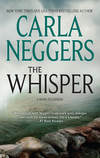Читать книгу: «Betrayals», страница 2
But the police had their evidence, and there was precious little romance in their souls. The search was on for their missing suspect.
If they had believed Gisela…
Jean-Paul felt the tears spill down his cheeks, and he watched Thomas Blackburn lay a pink rose on the coffin. If others wondered about his presence at Gisela’s funeral, Jean-Paul did not. “Thomas is a good man,” she would say. “A true friend.”
While the Bostonian closed his eyes in silent farewell, Jean-Paul turned away, whispering, “Adieu, Maman.”
Tam curled up in the middle of Tante Annette’s bed and sobbed quietly so that the other children wouldn’t hear her. They would only tease her for crying. Even Papa had said she needed to be brave. France wasn’t their home, he had told her. But to Tam it was. She didn’t remember Saigon at all.
“Hi, Tam.”
“Go away,” Tam said, looking up at Rebecca Blackburn. She was only four and as big as Tam was at six. It wasn’t fair. Nothing was fair. “I don’t want you here.”
Rebecca climbed onto the bed. “Why not?”
“Because I hate your grandfather!”
“You shouldn’t hate my grandfather,” the younger girl said. “He likes worms.”
Tam sniffled and wiped her cheeks with the backs of her hands. “He’s making Papa and me leave.”
“Where are you going?”
“Home.”
“But you live here.”
“Yes, but I’m not French.” She remembered her father’s words: “Our home is in Saigon.”
“I’ll come visit you,” Rebecca promised, curling up like Tam, her bare feet dirty from digging worms with her grandfather in the garden.
Tam shook her head, crying softly. “You can’t—it’s too far away.”
“My grandfather goes to Saigon all the time. My mom sends him pictures I color, and my dad says we can go see him sometime. We’ll come see you, too.”
“Okay,” Tam said, perking up. “Can you speak Vietnamese?”
Rebecca wasn’t sure what her friend meant, so Tam demonstrated, speaking a few sentences in her native tongue. Her father said they would have to stop speaking French when they were together and speak Vietnamese instead, so she could practice.
“It sounds pretty,” Rebecca said.
Tam smiled. No one had told her that before.
Her American friend jumped down off the bed and started poking around in Tante Annette’s things. She wasn’t really Tam’s aunt, but she said she didn’t like being called Madame Reed because it made her feel like an old woman. Tam adored her. She never criticized any of the children, just let them roam free in the gardens and the fields around the mas. Tam had heard Papa say Annette left them alone because she was bored and couldn’t be bothered with anyone’s needs except her own, but Tam didn’t believe that. Tante Annette was always patient and nice.
“Oooh,” Rebecca said, “look, Tam.”
With her grubby hands, Rebecca dumped out a soft, red bag onto the bed, and a pile of colored stones rolled onto the white spread. White, yellow, green, blue, red, purple, black—Tam giggled. “They’re so pretty!”
Rebecca carefully counted them; there were ten in all. “Do you think Tante Annette will let us play with them?” she asked.
Tam shook her head. “She’d be mad at us if she knew we were in her bedroom.”
“Oh. Do you want to dig worms with me?”
“No, thank you.”
With a shrug, Rebecca skipped out of the room, and Tam was again overwhelmed with loneliness and the fear of returning to a home she didn’t know or understand. She bit down hard to stop herself from crying and fingered the colored stones. She wished she could have them to remind her of Tante Annette and the mas. If she just asked…but no, Tante Annette would never say yes. And even if she did, Papa wouldn’t let Tam accept a gift she’d asked for.
Fresh tears warmed her eyes. Tante Annette had so many beautiful things. Papa said Vietnam was a poor country and they couldn’t expect to have as much as the Winstons did; it wouldn’t be fair to their countrymen who didn’t always have enough to eat. Tam tried to understand.
But she couldn’t bear to return the sparkling stones to the drawer where Rebecca had found them. Making her decision, she quickly stuffed them back into the velvet bag and ran to the caretaker’s house, to her tiny room next to the herb gardens, where she hid them.
“Tam, Tam,” Rebecca was calling excitedly.
Tam was certain her new friend had seen her and she’d have to give the stones back, but Rebecca ran into the caretaker’s house with the longest, fattest worm Tam had ever seen.
“Isn’t it cute?” Rebecca asked.
“Yes, it is,” Tam said, feeling much better.
Two
Boston, Massachusetts
Thirty years later
The waiter for the unhappy vice president of Winston & Reed brought him a second perfectly mixed martini and silently whisked away the empty glass of his first. A thin, gray-haired, punctilious man, Lee Donigan had a low threshold of tolerance for two things: doing someone else’s dirty work and being kept waiting. Rebecca Blackburn had managed to trigger both sources of irritation in one day.
He tried the martini. Excellent. He welcomed its soothing burn. It was his own fault he was stuck with this unpleasant task. He should have investigated the possibility that the award-winning graphic designer his public relations director had hired to revamp Winston & Reed’s corporate look was one of the Blackburns. He had assumed a Boston Blackburn wouldn’t have the gall to take on an assignment with his company. One should never assume.
Particularly, he’d learned the hard way, with a Blackburn.
And especially this one.
A flash of color, a burst of energy—both compelled Lee to look up. Rebecca Blackburn caught his eye from across the busy restaurant and waved, ignoring the maître d’as she made her way to his table. Her electric personality seemed to light up the lunchtime crowd atop the forty-story Winston & Reed Building. In the few times he’d met her, Lee had observed that Rebecca was the kind of woman who never cooled off. She was always on, always moving. When her subtle, grab-from-behind beauty was added to that compulsive energy, the result was one unforgettable woman. Her high cheekbones, strong eyebrows and chin and straight nose provided the drama in her keenly attractive face, the rich, unusual chestnut color of her chin-length hair complementing the pure creaminess of her skin. Lee found himself hoping she was too professional to unleash her temper on him. That she had one he didn’t doubt for a second.
She swept into the chair opposite him, a panoramic view of Boston Harbor under a clear May sky at her back. Lee’s table was the best in the house. His office was just two floors down. He enjoyed working in what was commonly referred to as Boston’s boldest and most luxurious building. He intended to keep his job, even if it meant doing for Quentin Reed what the president of Winston & Reed wouldn’t do for himself.
“Sorry I’m late,” Rebecca said.
There was nothing apologetic in her tone or her expression, and Lee’s moment of guilt drowned under a fresh wave of irritation. The woman had to have known she was provoking just such a lunch as today’s when she bid for the coveted design job with Winston & Reed. She should have restrained herself.
“But,” she went on, “I’ve never been asked to lunch with a vice president who didn’t mean to fire me.”
Fresh words from a damn artist, Lee thought. Her eyes—a vivid, clear blue—met his just for an instant before she smiled and put her water glass to her coral-dusted lips. She looked every inch the stylish professional in a pumpkin-colored jacket over a black skirt—probably, if Lee could believe hall gossip, something she’d picked up for a song at Filene’s Basement. She could afford to shop wherever she liked. Lee had to remind himself that Rebecca Blackburn was a very wealthy woman. She wasn’t going to starve.
He noticed the gold dragons hanging from her ears. They demonstrated her renowned irreverence, her Blackburn independence. Even if they’d been three-dollar costume pieces—and they weren’t—they would have told Lee Donigan that she wasn’t one of them. She stood apart from everyone else at Winston & Reed. She didn’t belong. And she knew it.
He decided not to bother mincing words with her. “You’re right,” he said. “We have to cancel our contract with you, Rebecca.”
“Whose idea?”
“That’s irrelevant.”
He motioned for the waiter and nodded to Rebecca to order, not caring that he was rushing her. She was the one who’d shown up late. She ordered the broiled scrod and a salad, and he made it two. The two martinis had curbed his appetite.
“I’ll have mine to go,” Rebecca said as the waiter started to leave.
The poor fellow looked dumbfounded. “To go?”
She graced him with one of her most dazzling smiles. “Please.”
Lee silently cursed Quentin Reed for being such a pusillanimous jerk he couldn’t tell a woman he’d known since childhood to quit playing games with him and get the hell out of his company.
“I gather you don’t even want to see the proofs,” Rebecca said.
“I don’t see what purpose that would serve.”
But Lee would have loved Rebecca Blackburn to spread her portfolio on the linen-covered table and to give him a good, long look at the work she’d done for his company. As a designer, Rebecca was top-notch. Her preliminary sketches for Winston & Reed had blended the company’s disparate elements, its old Boston traditionalism with its modern boldness and direction. Lee knew she wouldn’t be easily replaced, if at all.
“Are you going to give me any advice?” she asked suddenly.
Her question caught Lee off guard. “I beg your pardon?”
“I’ve never been fired without getting unsolicited advice on how to conduct myself in the future. My favorite was from the president of the Dallas-based oil company where I worked a couple of months about two years ago. He told me I ought to get my pretty little self married and start having babies, but then he changed his mind and said he wouldn’t wish a smart-mouthed nutcase like me on any red-blooded male.”
Lee fervently wished for another martini. His public relations director had alerted him to Rebecca’s résumé and its dizzying list of firms and cities where she’d worked since becoming one of the rags-to-riches business successes of the decade at twenty-five. She and her former roommate at Boston University had created the fun, fast-paced, irreverent trivia game Junk Mind that had become an instant and explosive bestseller. When they’d sold the rights to a Boston-based toy-and-game conglomerate, the roommate had taken a vice presidency with the company and they’d made a fortune. Rebecca, who’d designed the game board now in millions of households across the globe, had continued her drifting. New York, London, Paris, Dallas, Seattle, Honolulu, San Diego, Atlanta—she’d had jobs in them all. Not that she needed to work, but in the short time he’d known her, Lee had gained the distinct impression she didn’t hold a high opinion of the idle rich—or anyone who didn’t work. She’d only been back in Boston five months, making another of her periodic runs at operating her own design studio. But to make a lasting success of a studio, she would finally have to make the commitment not just to her latest project but to a place. Lee didn’t know if she was running from herself, from the tragedies in her past, from her own startling success, or if she was running at all. He wondered if she was just not ready to stay put. With Rebecca, it could be just that simple.
“I’m not going to give you any advice,” he said, smiling in spite of himself. “I only hope you find whatever you’re looking for here in Boston. And I wish you luck, Rebecca.” He extended his hand across the table. “Truly, I do.”
“Would it have made a difference if I weren’t a Blackburn?”
“It would have made a difference,” he said, knowing he shouldn’t, “if you were anyone but who you are.”
Rebecca wasn’t one to turn down a meal Quentin Reed was stuck paying for, but the smell of the fish turned her stomach as the elevator plunged forty stories, its doors sliding smoothly open at the cherry, marble and brass lobby. She started out.
And stopped. No. She wasn’t going to let Quentin off that easily.
She marched back into the elevator, tapped thirty-nine, and nibbled on a sprig of crisp spinach on the way up. She wasn’t afraid of Quentin Reed. She’d run and fetched him baking soda and water the time he and Jared Sloan had peed in the yellow jackets’ nest, and she hadn’t told his mother of their idiocy when she’d demanded to know why the two boys were walking so funny.
The thirty-ninth-floor reception area was, if anything, more opulent than the lobby, but Rebecca had no trouble lying her way past the receptionist into the inner sanctum of the president and chief executive officer of Winston & Reed, Boston’s most prestigious real estate and construction firm. Annette Winston Reed still retained the title of chairman of the board, but the real power of the company now resided with her thirty-seven-year-old son, a circumstance that surprised Rebecca. Annette had never thought Quentin was worth a damn.
His secretary was a well-dressed, highly efficient woman who informed Rebecca she would require an appointment to see Mr. Reed.
“I’m a family friend,” Rebecca said, breezing past her.
On her feet at once, Willa Johnson, willowy and fast, protested, firmly suggesting Rebecca wait while she checked with Mr. Reed—or suffer the consequences of her whisking in security.
“Mr. Reed and I,” Rebecca said, “were kicked out of the wading pool on Boston Common for taking our clothes off. He was five and I was two.” Supposedly, too, Jared had been the one who’d gotten them dressed and hauled them back to Beacon Hill. Mercifully, Rebecca didn’t remember.
With Willa momentarily taken aback at the image of her well-bred boss skinny-dipping on Boston Common, Rebecca slipped into his spectacular office.
Across the room, Quentin Reed slowly hung up his telephone, his pale blue eyes riveted on her. “Rebecca,” he said in little more than a whisper.
It had been fourteen years.
A recovered Willa, about to strong-arm Rebecca out herself, heard the emotion in her boss’s raw voice and retreated, quietly shutting the door behind her.
“Hello, Quentin.”
He was as handsome as ever. Ash-haired, square-jawed, trim, even confident, although Rebecca suspected that was more in appearance than in fact. Quentin had forever been at war with his sensitive nature. He wore a conservative pinstriped suit of exquisite cut.
He cleared his throat. “What can I do for you?”
“Was it your idea or your mother’s to have me fired?”
“You’re not an employee. It wasn’t a question of firing you.”
“Semantics, Quentin. You’re not going to weasel out of this one. You found out about me, told your mama and she said to give me the boot?”
He winced at her bald words, but confirmed her guess with a small nod.
“Does this mean I’m going to have the long arm of the Winston-Reed clan undermining my business in Boston?”
“Of course not.” He rose, and she was surprised at how tall he was. She’d forgotten. “Rebecca, look at this situation from our point of view.”
“I have. That’s why I’m here. You can’t stand the idea of a Blackburn earning a penny off Winston & Reed.”
“You don’t need the money—”
“That’s not the point. Quentin….” She exhaled, wishing now she hadn’t gotten back into the elevator. “Quentin, I was hoping we could put the past behind us.”
He shut his eyes a moment, sighing, and shook his head. “You should have known that’s impossible.”
She supposed she should have. Twenty-six years ago Quentin’s father and hers—and Tam’s—were killed in a Vietcong ambush for which Thomas Blackburn, Rebecca’s grandfather, was directly responsible. It was a lot for anyone to put aside. But she wasn’t going to give Quentin the satisfaction of telling him that.
She told him instead, “Bidding on this project was strictly a business decision on my part.”
“You never were worth a damn as a liar, Rebecca. It’s only your grandfather—”
“Leave him out of this.”
Quentin stiffened. “You’d better leave before we both say things we’ll regret.”
On her way out of the luxurious office, Rebecca debated dumping her fish dinner in the trash, hoping it’d stink up the place. But she resisted, because there’d never been any satisfaction in trying to prove to anyone that the Blackburns still had their pride.
Three
San Francisco
Jared Sloan cursed the sadist who had invented the tuxedo and had another go at his bow tie. It’d been years since he’d tied one. He’d managed all the other parts of the tux with relative ease and probably would have handled the bow tie all right, but he was running late. At least, except for cleaning, his tuxedo hadn’t cost him a dime. His mother—proper Boston Winston that she was—had insisted on buying it for him years ago, and all he’d had to do was resurrect it from the back of his closet. Another failure with the tie, though, and back under his baseball cards it went. He’d wear jeans. Which would embarrass his father and his daughter. He’d never hear the end of what an insensitive lout he was and sparing himself that was worth another try at his tie, and maybe even the six or seven hours he was doomed to spend in his tuxedo. It was a close call.
He smiled at the sound of Mai’s undignified squeal from the entry. “Daddy!” Then she caught herself and calmed her voice to that of a fourteen-year-old would-be sophisticate. “Dad, are you almost done? The limousine’s here.”
Only for you, babe. Jared successfully completed his third try at what was, in fact, a simple knot. He quickly appraised himself in the mirror. The tux’s classic style helped conceal its age; both the Boston Winstons and San Francisco Sloans would be willing to claim him tonight. He had the strong Sloan cheekbones, dark hair, teal eyes and their general rakish, devil-may-care look. His height—he was six-two—and his more powerful build came from his mother, the second of Wesley Sloan’s four wives, who’d exited from Boston society years ago and now lived on the east coast of Canada in what she called self-imposed exile. She’d never been so content.
“Wow,” Mai said when he joined her in the entry. “Don’t you look handsome.”
He laughed. “You’re no dog yourself.”
Mai wrinkled up her pretty face. She was a small, slim girl, wiry and strong, with almond eyes and high cheekbones, a squarish jaw and a reddish cast to her fine, dark hair. From the time she was a tot, Jared had tried to get her to concentrate just on being herself. But lately he’d begun to realize that Mai wasn’t entirely sure who that was. He tried to understand. Her mother, whom Mai had never known, had been Vietnamese. In Vietnam, Amerasians were known as bui doi. The dust of life. The expression broke his heart, for Mai was, in a very real way, the light of his life.
“That’s not much of a compliment,” she told her father.
“Wouldn’t want you to get a swelled head. You’re going to be swimming in compliments by the end of the evening. Ready?”
The glint in her eyes and the way she kneaded her hands together told Jared his only child was champing at the bit, anxious to zip ahead of him to the elegant black limousine waiting incongruously outside their small redwood-and-stucco house on Russian Hill. But she restrained herself. A bright ninth-grader, she had lost none of the energy and exuberance of her early childhood, but was channeling it in new directions. Still, Jared found himself half expecting she’d run out and kick the limousine’s tires, check under the hood, demand to try out every seat and see how every gadget worked, what every button did. A year ago she would have—in fact, her grandfather had told him, had.
Tonight, however, she walked regally out to the monstrous car, careful not to muss her gown made of clear, cool magenta fabric that exquisitely complemented the delicate tones of her skin. She quietly thanked the chauffeur by his first name, George, when he held the door for her, and tucked her knees together and her ankles to one side when she settled back into the leather seat.
Jared came around to the driver’s side and climbed in beside her. He hated limousines more than he did tuxedos. At sixty-five, Wesley Sloan was an internationally renowned architect and could well afford his expensive tastes. The repeated offers he’d made to Jared to join his San Francisco–based firm were enough to make most architects salivate, but Jared, the eldest of Wesley’s three children by ten years, continued to turn him down. He preferred to work solo, in the small studio behind his house, specializing in renovations, restorations and additions— “glorified carpentry,” his father called it. But Jared’s half sister Isabel had recently earned her graduate degree in architecture from UCLA and seemed ready to make the move up to San Francisco, something he hoped would take that last bit of heat off him. Wesley Sloan knew Jared wasn’t going to change his mind, but he wasn’t a man who liked to accept defeat.
If Wesley had known how much his granddaughter enjoyed riding in his limousine, he’d have tried sending it around every afternoon and never mind her father.
It was a cool, damp, foggy evening, the kind that made Jared intensely aware of his aloneness. He watched silently out the window as the car wound its way down the narrow, twisting streets of Russian Hill.
A small crowd was gathered in front of the elegant newly opened San Francisco Villa Hotel, designed by Wesley Sloan. He and his current wife were hosting their annual charity ball, a major social event on the city’s spring calendar. Wesley had issued an invitation to his granddaughter every year since her twelfth birthday. This year, Jared had relented and agreed to let her attend. As he had before her, Mai would have to learn to deal with being a Winston and a Sloan on her own terms—not theirs, not his.
But as much as he believed in her and admired her spirit and self-assurance, she was just a kid. His kid. And he couldn’t stop himself from wanting to protect her.
She tugged on his arm. “Daddy—look.”
Jared was already looking. As the limousine pulled up to the curb, eight or ten huge Harley-Davidson motorcycles materialized out of the fog and formed a menacing half circle around the car.
“George?” Jared asked.
“I don’t know what’s going on, Mr. Sloan,” the driver said. “There’s no way I can pull out—we’re stuck here.”
“Are they going to hurt us?” Mai asked, trying to hide her nervousness.
Jared shook his head. “No, they’ve got too big an audience. I think they just want to intimidate us.”
They revved their engines and made a lot of noise, glowering at their own reflections in the limousine windows. They were an ugly lot—overweight, tattooed, unkempt. Not one wore a helmet. Tough guys. Jared spotted two policemen emerging tentatively from the crowd. A newspaper photographer was clicking madly away.
“To hell with this,” Jared muttered and turned to Mai. “Stay put.”
He threw open the door as far as he could, until it touched the edge of the lead bike, and climbed out, directing his attention at the driver, a mean-eyed individual with a battered leather jacket stretched over his fat gut. Jared asked nonchalantly, “What’s up?”
“We weren’t invited to the party.”
Jared laughed. “Consider yourself lucky.”
The photographer had worked his way around the limousine behind the two policemen, who didn’t appear to be in any hurry to assert their authority.
“Hate to miss a party,” the biker said. He made a point of coughing up a huge clam and spitting so that it landed at Jared’s toes.
Jared wasn’t impressed. The guy and his pals were just getting their kicks intimidating a bunch of rich folks at a high-society gathering, only they’d picked the wrong target. Jared had dealt with scarier people than this.
“You can go in my place,” he said, almost meaning it. “Got a tux strapped to that contraption?”
The biker seemed to appreciate Jared’s humor and started to grin, but then Mai popped her head out behind her father and pulled his hand. “Daddy, please come back inside—”
“Hey—who’s the gook kid?”
Jared heard Mai’s sharp intake of breath and saw the look of amusement her obvious fear and hurt elicited from the biker.
He snapped.
Putting all his weight on the door of the limousine, he lunged toward the big motorcycle. The force of the door hitting the bike’s front tire caught the driver off guard and wrenched the handlebars out of his hands. He couldn’t clear the bike and went down with it, catching his left leg underneath it. Jared didn’t lose any time. He leaped over the fallen motorcycle and jumped on the bastard who’d insulted his daughter.
It wasn’t the other bikers coming to the aid of their trapped buddy or the police jumping into the fray that stopped Jared from beating the guy senseless.
It was Mai.
“Daddy!” she cried.
He released the man’s flabby throat and climbed back over the motorcycle, putting out his arms as Mai ran to him, near tears. He told her softly, “It’s okay. They’re just punks.”
Reluctant to prolong the confrontation, the police let the bikers shove off. Jared noticed he’d gotten grease on his tuxedo and his tie had come undone. So much for sartorial splendor.
He put out his arm for Mai. “Madame?”
She giggled and laid her small hand on his crooked elbow. “I should have helped you beat that guy up.”
“One hothead in the family’s enough.”
The photographer continued to click away, but Jared ignored him and the cheering onlookers as he escorted his daughter to her first charity ball.
Бесплатный фрагмент закончился.
Начислим
+5
Покупайте книги и получайте бонусы в Литрес, Читай-городе и Буквоеде.
Участвовать в бонусной программе




















